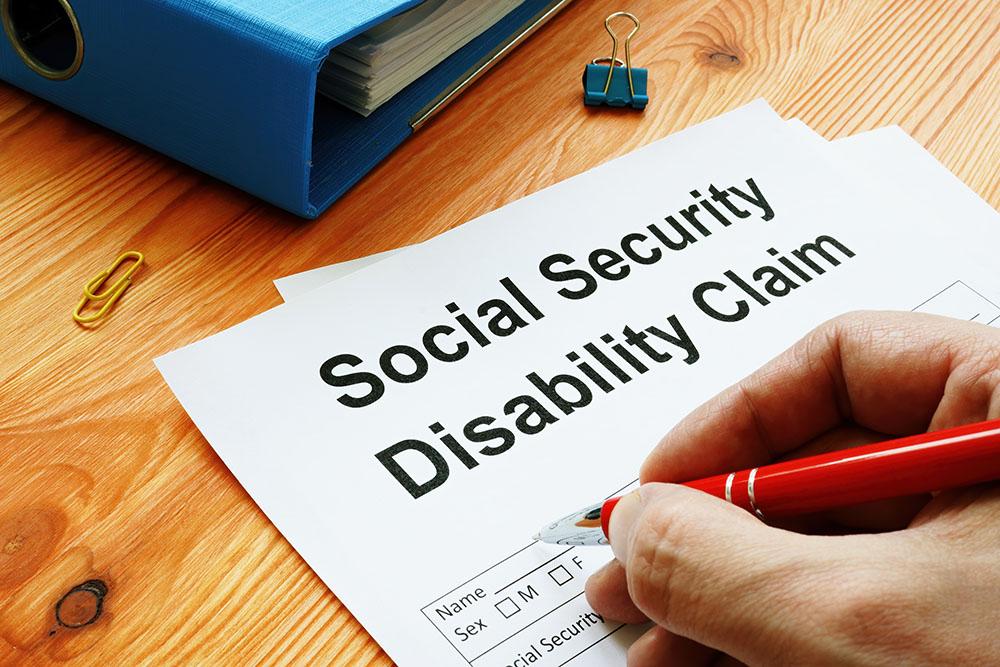Facing a denial for a disability claim can feel overwhelming, especially when you depend on those benefits for daily living. Understanding the appeal process is essential in making sure your claim gets a fair review. Knowing what steps to take after a denial can make all the difference in getting the support you need. Wilmington, NC, residents have a unique advantage with professional guidance nearby to help navigate this complex process with ease.
Appealing a denied claim involves more than just reapplying. It’s about carefully understanding why the initial claim was denied and how to address those reasons effectively. By learning the appeal process and understanding your rights, you can greatly improve your chances of success. Having the support of experienced disability lawyers in Wilmington can ensure you’re on the right path to obtaining your deserved benefits.
Understanding Why Disability Claims Get Denied
Disability claims can be denied for many reasons, making it crucial to know what could have gone wrong. Sometimes, it’s just a matter of missing paperwork, while other times a lack of sufficient medical evidence might be the cause. Common reasons for denials include incomplete applications, insufficient medical records, and failure to follow prescribed treatments.
To truly understand the denial, start by reviewing the denial letter carefully. This document typically outlines the reasons for the rejection, helping you identify what needs to be fixed. Knowing these reasons allows you to focus on gathering additional necessary documentation or improving the information initially provided.
Without understanding the denial’s cause, you may risk repeating the same mistakes in your appeal. By focusing on details like clear medical descriptions and evidence of your condition’s impact on your everyday life, you can build a stronger case. Addressing these points not only enhances your current appeal but also aids any future submissions.
Steps to Take Immediately After a Claim Denial
Once you’ve read and understood the denial letter, it’s time to take action. Acting promptly after receiving a denial ensures you stay within any necessary deadlines for appeals.
1. Review the Denial Letter: Read through it thoroughly. Highlight any areas that mention missing information or documentation that needs strengthening.
2. Gather Additional Evidence: Collect updated medical records or new evidence that supports your claim. This might include recent doctor’s notes, tests, or new prescriptions that show changes in your condition.
3. Strengthen Your Case: With the new information, prepare a clear case that addresses the denial’s reasons. Organize all documents in a logical order, making it easier for reviewers to see your needs and situation.
Paying due attention to these steps forms the foundation of a robust appeal. Delaying action can result in missed opportunities or deadlines, potentially making the process more challenging. Taking these uncomplicated yet vital steps helps put you back on the path to ensuring your claim is given the attention it truly deserves.
How to File an Appeal for a Denied Disability Claim
Once you’ve gathered all necessary evidence, it’s time to focus on the actual appeal process. Filing an appeal involves several stages, each requiring careful attention to detail to ensure a successful outcome. Start by knowing the specific deadlines you must meet to avoid any delays. Missing a deadline could mean starting the process over from the beginning or losing the chance to appeal altogether.
The initial step usually involves writing a formal appeal letter. Clearly state why you believe your claim should be reconsidered. Include all new evidence or documentation to support your case. This isn’t just about paperwork; it’s about clearly demonstrating your need and your situation’s impact on daily life.
Organizing your documents is crucial. Here’s how to ensure everything is in order:
– Categorize Evidence: Separate medical records, doctor notes, and personal statements.
– Create a Summary Sheet: Briefly outline each piece of evidence to make it easy to review.
– Label Documents: Make sure each document is labeled appropriately for quick reference.
Throughout the appeal process, maintain open communication with the Social Security Administration or relevant body handling your case. This means keeping copies of all correspondence, in case you need to reference earlier discussions. Following these steps carefully can help turn a denial into an approval, providing much-needed support.
The Role of Disability Lawyers in Wilmington
For many in Wilmington, navigating this process can be overwhelming, which is where the expertise of local disability lawyers comes in. They have extensive knowledge of local processes and can guide you through each step, improving your chances of a successful appeal. Their familiarity with similar cases can be invaluable, ensuring that your appeal touches on all necessary points.
An experienced attorney can also help in presenting your case more effectively. They can identify any potential weak spots and advise on how to address them before submitting your appeal. Real-life examples have shown how lawyers have helped individuals overcome initial denial hurdles by reorganizing evidence and stressing key points that were initially overlooked.
Having someone local means ease of access. It provides you the opportunity to discuss your case face-to-face, ensuring clear communication and understanding. With their guidance, you can focus on what matters most—continuing your life while awaiting a decision.
Getting Support During the Appeal Process
As you move through the appeal, it’s important not to overlook the emotional and mental challenges that accompany this journey. In Wilmington, there are various support groups and resources available to offer some relief and provide guidance. Engaging with others in similar situations can give you a sense of community and shared strength.
Emotional well-being should be a priority. Here are some tips to help you stay centered:
– Join Local Support Groups: Connecting with others facing similar challenges can provide emotional relief and shared strategies.
– Utilize Community Resources: Look into local non-profits or organizations that offer aid or counseling.
– Practice Self-care: Regularly engage in activities that lift your spirit, whether it’s a hobby or spending time in nature.
By seeking out these supports, you’ll find the process less daunting and maintain a more positive outlook, knowing help is available.
Moving Forward: Ensuring Success in Future Claims
The appeal process offers valuable lessons that can help strengthen any future claims. Understanding what led to the initial denial will allow you to submit more robust applications moving forward. Focus on gathering comprehensive medical records and detailed descriptions of your condition’s effects.
Stay proactive in communication and documentation. Here’s how you can ensure no future stones are left unturned:
– Keep Up-to-Date Medical Records: Regularly update your file with any new medical appointments or changes in condition.
– Maintain Organized Files: Ensure all documents are readily accessible and clearly labeled.
– Communicate Regularly with Professionals: Keep in touch with doctors, therapists, or anyone else involved in your care to ensure they can provide solid support if needed.
Preparing your future claims with these insights can transform the process into one of preparedness rather than reaction, helping you maintain control over your journey toward securing disability benefits.
Struggling with the intricacies of appealing denied claims can feel like navigating a maze. Having guidance can make all the difference. If you feel overwhelmed, consider reaching out to experienced disability lawyers in Wilmington. At Greg Jones Law, P.A., our team is ready to provide the advice and commitment needed to strengthen your appeal and pursue the benefits you deserve. Let us be your ally in this challenging process.




